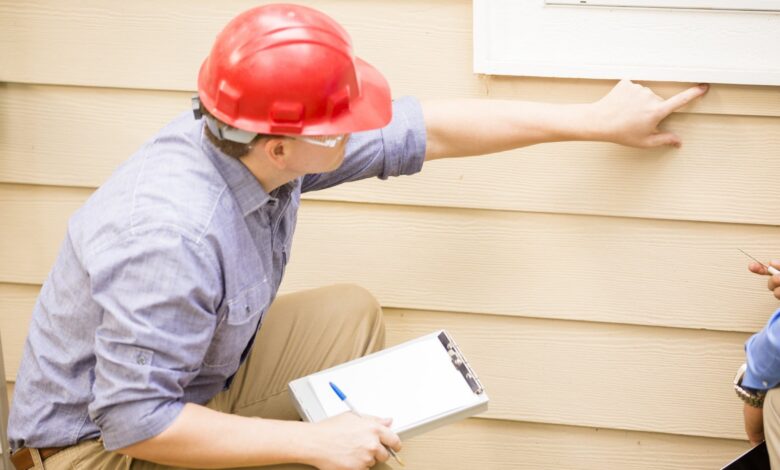
Buying a home is one of the most significant investments you’ll ever make, and it’s essential to understand the importance of a thorough buyers home inspection before finalizing the purchase. Your dream home may have hidden defects or potential issues that could turn into costly nightmares if left undetected. A comprehensive buyers home inspection Royal Oak can help you identify these problems and make an informed decision about your investment.
The Value of a Professional Home Inspector
When it comes to evaluating a property, a trained and experienced professional home inspector brings a wealth of knowledge and expertise to the table. They have the skills to assess the condition of a home’s various components, from the foundation to the roof, and everything in between. Their keen eye and attention to detail can uncover issues that may not be immediately apparent to the untrained eye.
Identifying Structural Concerns
One of the primary responsibilities of a buyers home inspection is to assess the structural integrity of the property. This includes examining the foundation, walls, floors, ceilings, and roof for any signs of cracks, settling, or other issues that could compromise the stability of the structure. A professional inspector will also check for any evidence of termite or pest infestations, which can cause severe damage if left unchecked.
Evaluating Major Systems
During a buyers home inspection, the inspector will thoroughly examine the home’s major systems, including the electrical, plumbing, and heating, ventilation, and air conditioning (HVAC) systems. These systems are essential for the proper functioning of the home and can be expensive to repair or replace if they are outdated or malfunctioning.
The inspector will check for any potential hazards, such as faulty wiring or leaks, and ensure that the systems are operating efficiently and safely. They will also assess the age and condition of these systems, providing you with valuable information to help you plan for future upgrades or replacements.
Assessing Energy Efficiency
In today’s environmentally conscious world, energy efficiency is an increasingly important consideration when purchasing a home. A professional inspector can evaluate the home’s insulation, windows, and other energy-related components to determine their efficiency and provide recommendations for improvements that could lead to significant cost savings in the long run.
The Implications of Various Findings
During a buyers home inspection, the inspector may uncover a range of issues, some more serious than others. It’s essential to understand the implications of these findings and how they may impact your decision to purchase the property or negotiate repairs with the seller.
Minor Defects
Minor defects, such as loose doorknobs, cracked tiles, or worn carpeting, are typically cosmetic in nature and relatively inexpensive to repair. While these issues should not be overlooked, they are generally not deal-breakers in the home-buying process. However, it’s important to factor in the costs of addressing these minor defects when considering the overall value of the property.
Moderate Concerns
Moderate concerns, such as outdated electrical systems, minor roof leaks, or inefficient HVAC units, can be more significant and may require more substantial repairs or replacements. These issues can impact the functionality and safety of the home, as well as its energy efficiency and long-term maintenance costs.
In these cases, it’s crucial to gather accurate estimates for the necessary repairs or replacements and factor them into your budget and negotiations with the seller. Depending on the extent of the work required, you may be able to negotiate a lower purchase price or request that the seller addresses these concerns before closing.
Major Issues
Major issues, such as structural defects, extensive water damage, or the presence of hazardous materials like asbestos or lead-based paint, can be deal-breakers in the home-buying process. These problems can pose significant health and safety risks and may require costly and extensive repairs or remediation.
If major issues are discovered during the buyers home inspection, it’s essential to carefully weigh the potential costs and risks against the value of the property. In some cases, it may be advisable to walk away from the purchase altogether, as the costs and risks associated with addressing these issues may outweigh the benefits of owning the home.
Proactive Maintenance and Repairs
While a buyers home inspection is a critical step in the home-buying process, it’s important to understand that it is a snapshot of the property’s condition at a specific point in time. Regular maintenance and timely repairs are crucial to maintaining the value and functionality of your home over the long term.
Developing a Maintenance Plan
Based on the findings of the buyers home inspection, you can develop a comprehensive maintenance plan for your new home. This plan should include regular inspections, routine maintenance tasks, and a schedule for replacing aging systems or components before they fail.
By staying proactive with maintenance, you can extend the life of your home’s systems and components, reducing the likelihood of costly repairs or replacements down the line. Additionally, a well-maintained home is more energy-efficient, which can lead to significant cost savings over time.
Addressing Identified Issues
If the buyers home inspection identified any moderate or major issues, it’s crucial to address them promptly. Delaying necessary repairs or replacements can often lead to further deterioration and more significant problems down the road.
Work with licensed and reputable contractors to ensure that any repairs or replacements are carried out correctly and to industry standards. Additionally, be sure to obtain all necessary permits and follow local building codes to maintain the safety and value of your home.
Conclusion
A comprehensive buyers home inspection is an essential step in the home-buying process, providing valuable insights into the condition of the property and helping you make an informed decision about your investment. By understanding the implications of various findings and taking a proactive approach to maintenance and repairs, you can mitigate potential risks and protect your investment for years to come.
Remember, a buyers home inspection is not just a formality; it’s an opportunity to gain a deeper understanding of the home you’re considering and to ensure that you’re making a sound investment. While the process may seem daunting, the peace of mind and potential cost savings that come with a thorough inspection make it well worth the effort.
Also, read this: Enhance Your Saint Louis Home Buying Experience with a Certified Home Inspector



